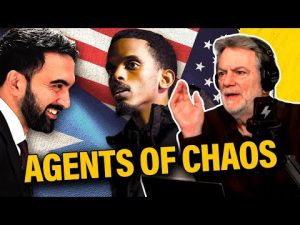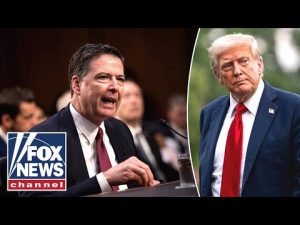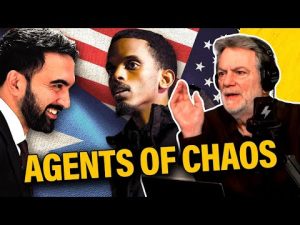In the theatrical world of global politics, there’s always a new plot twist. Recently, the President of the United States, with a flair perhaps more suited to a Hollywood blockbuster, gathered European leaders and Ukrainian President Zelensky at the White House. The scene, while aesthetically appealing, did little to move the pendulum in the ongoing saga between Ukraine and Russia. Sure, it made for a headline-grabbing photo op – something Peggy Noonan of the Wall Street Journal eagerly pointed out – but as far as tangible progress towards peace went, the event was yet another episode of diplomatic theater with no grand finale.
According to Senator Jack Reid, Putin hasn’t exactly been shaking in his boots at the sight of Western camaraderie. Instead, the Russian leader seems to be sitting tight, brewing his own blend of geopolitical tea, hopeful that time may tilt the odds in his favor. The idea being tossed around is a NATO-like security guarantee for Ukraine, something akin to offering the perks of the club without actually signing up for membership. However, it’s not entirely clear how this will deter a leader like Putin, who seems to dance around sanctions and diplomatic measures as though they’re mere party tricks.
The conversation has reached a point where everyone involved seems to be ships passing in the night. The dialogue is full of terms and declarations like “integrity of Ukraine” and “strong relationships,” but no one has dropped anchor on a concrete action plan. The President has assured that there won’t be any boots on the ground, but talked vaguely about the potential use of air support. Air support? The same air support mentioned in textbooks from previous wars as being critical, yet now sounds like only a garnish on the entrée of international military strategy? It seems the U.S. is stepping cautiously so as to not spill any diplomatic tea while maintaining an air of bravado.
One of the supposed arrows in this diplomatic quiver is a sanctions bill poised to make life uncomfortable for Putin and his pals. Yet, even as the Senate pats itself on the back for pushing against Russia, there’s an acknowledgment that sanctions alone aren’t going to heave the entire situation back onto its rails. The Senator candidly admitted that shuffling sanctions around is akin to herding cats, especially when they have been dodging them with the assistance of nations like China. But, hey, it wouldn’t be modern politics if there weren’t a second act to hope the plot improves.
Senator Reid proposed a multi-faceted approach: inject more funds into Ukraine, send more equipment, and perhaps dip into the stockpile of frozen Russian assets. While it’s refreshing to see some proactive suggestions, the premise hinges on having the political will and, more importantly, operational competence to carry them out. Even more ambitious is the idea of repurposing frozen Russian funds – a concept that might make for an interesting international finance thriller, but in reality, is likely to spark quite an uproar in diplomatic circles.
Ultimately, as this situation unfolds, it remains to be seen whether all these diplomatic, economic, and military musings will bear fruit. The global audience is left in suspense, eagerly (or not) awaiting the next act. One thing is certain: the world stage will continue to be a game of high stakes and uncertain outcomes, where diplomacy, power, and strategy collide in ways both predictable and utterly surprising.







